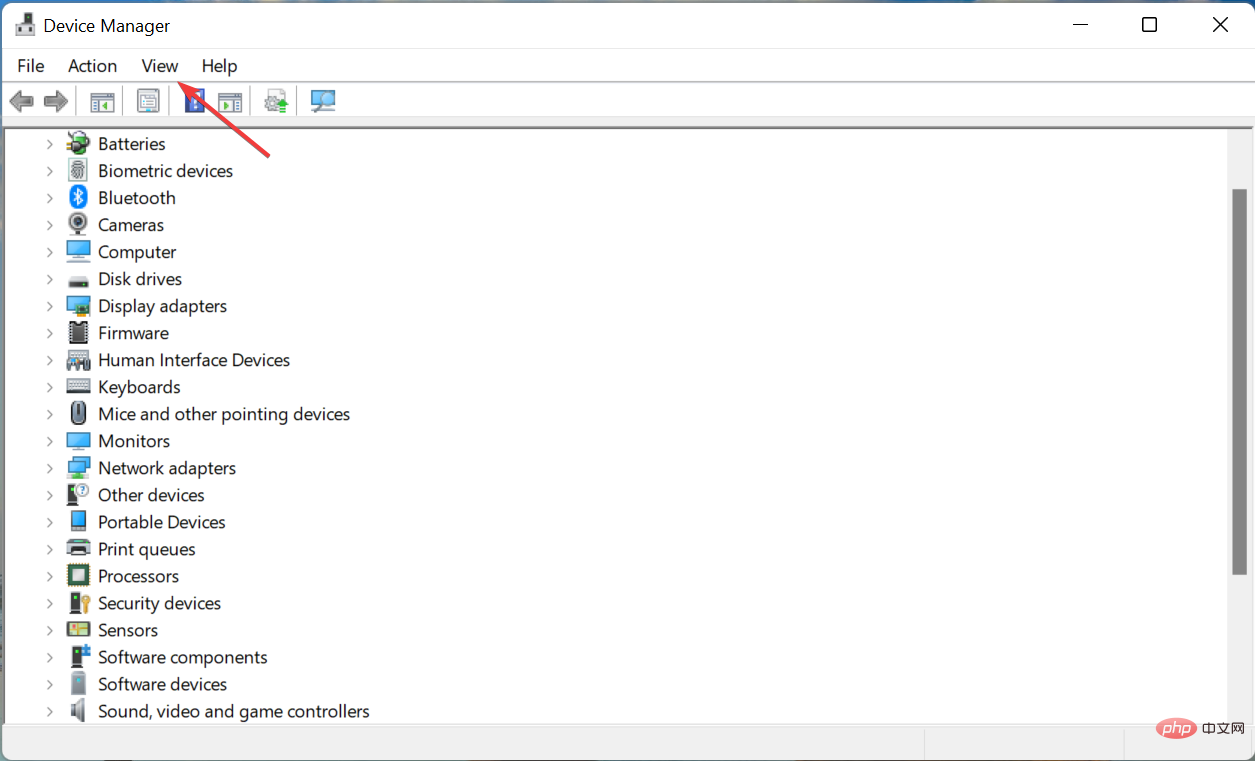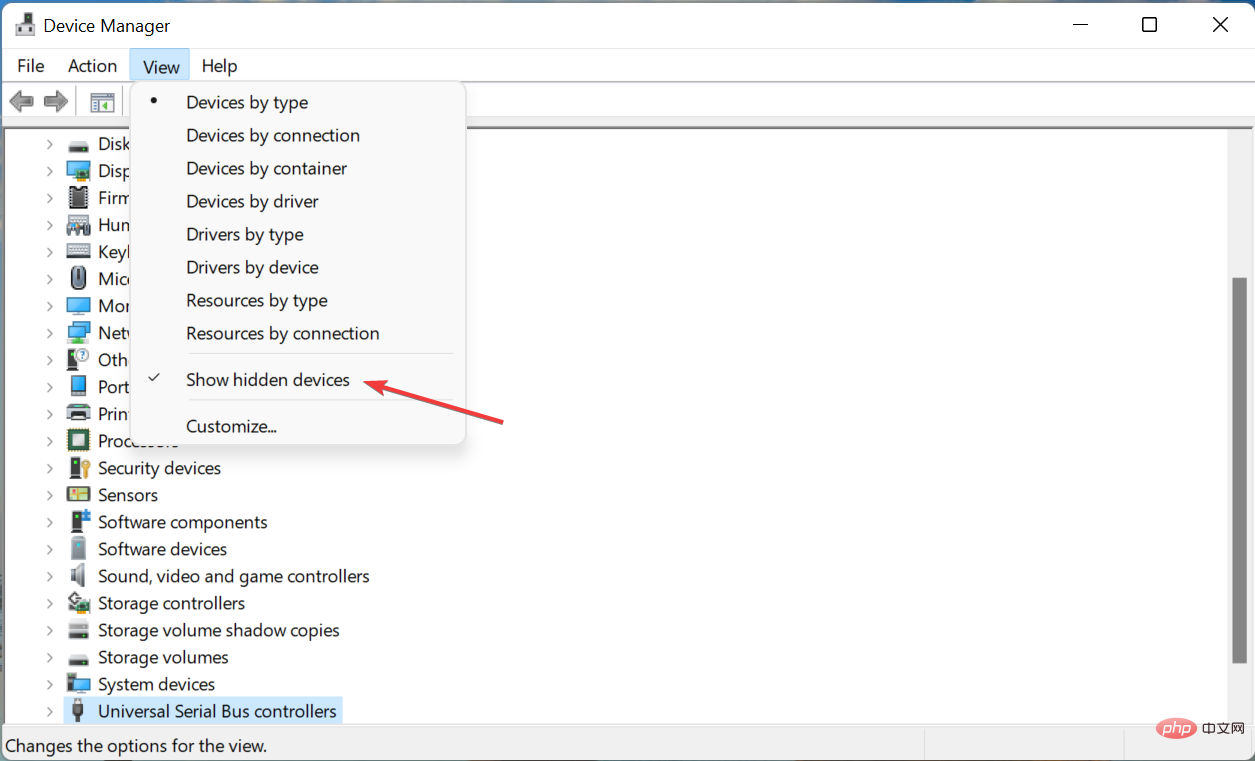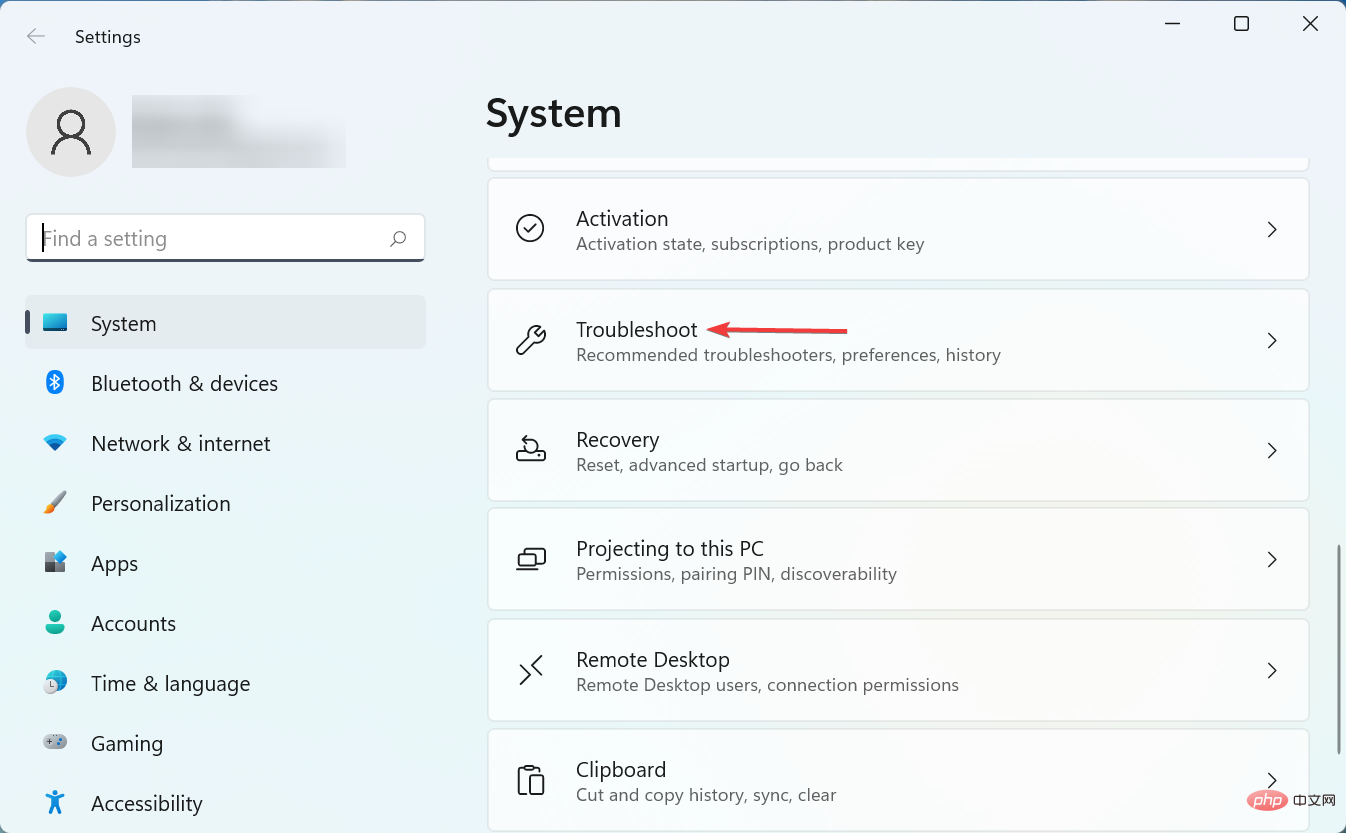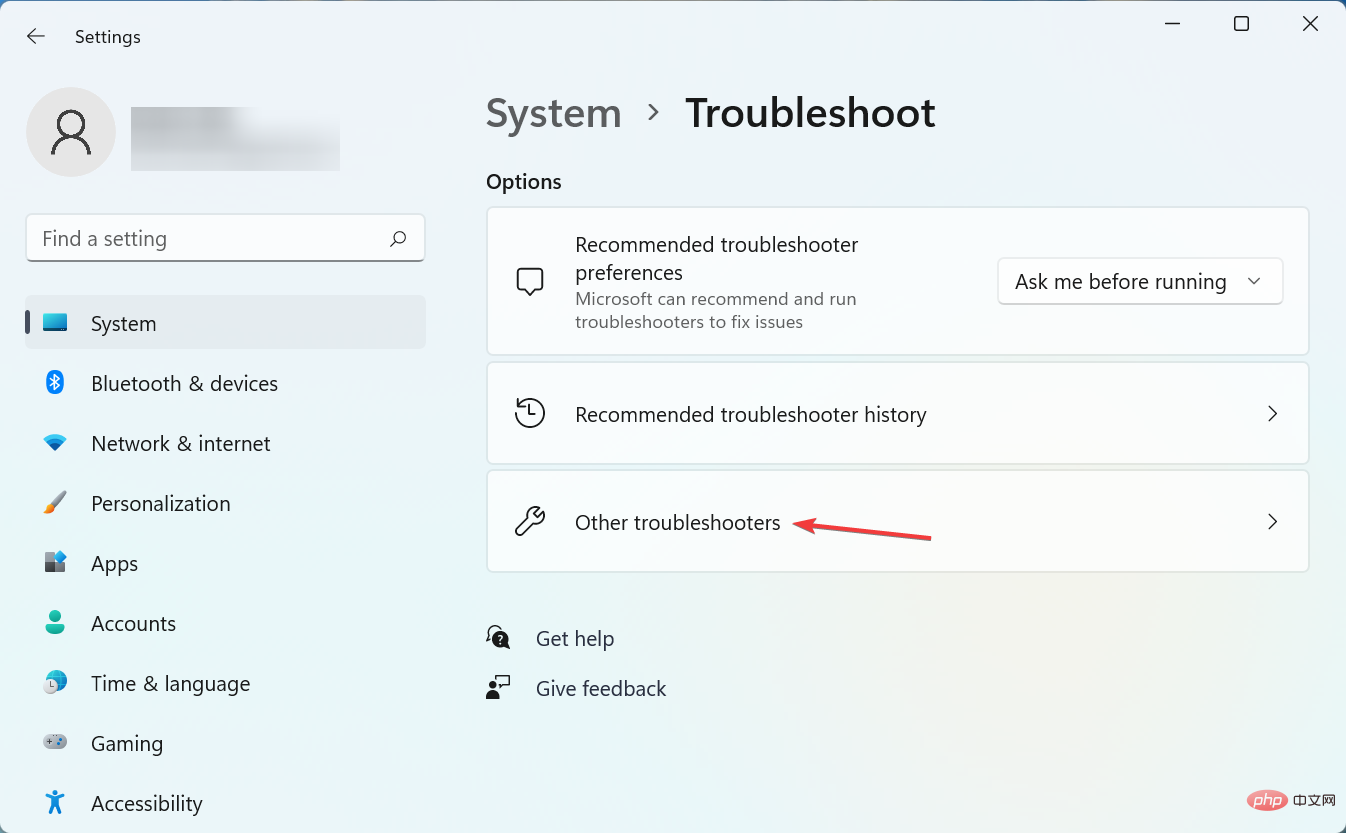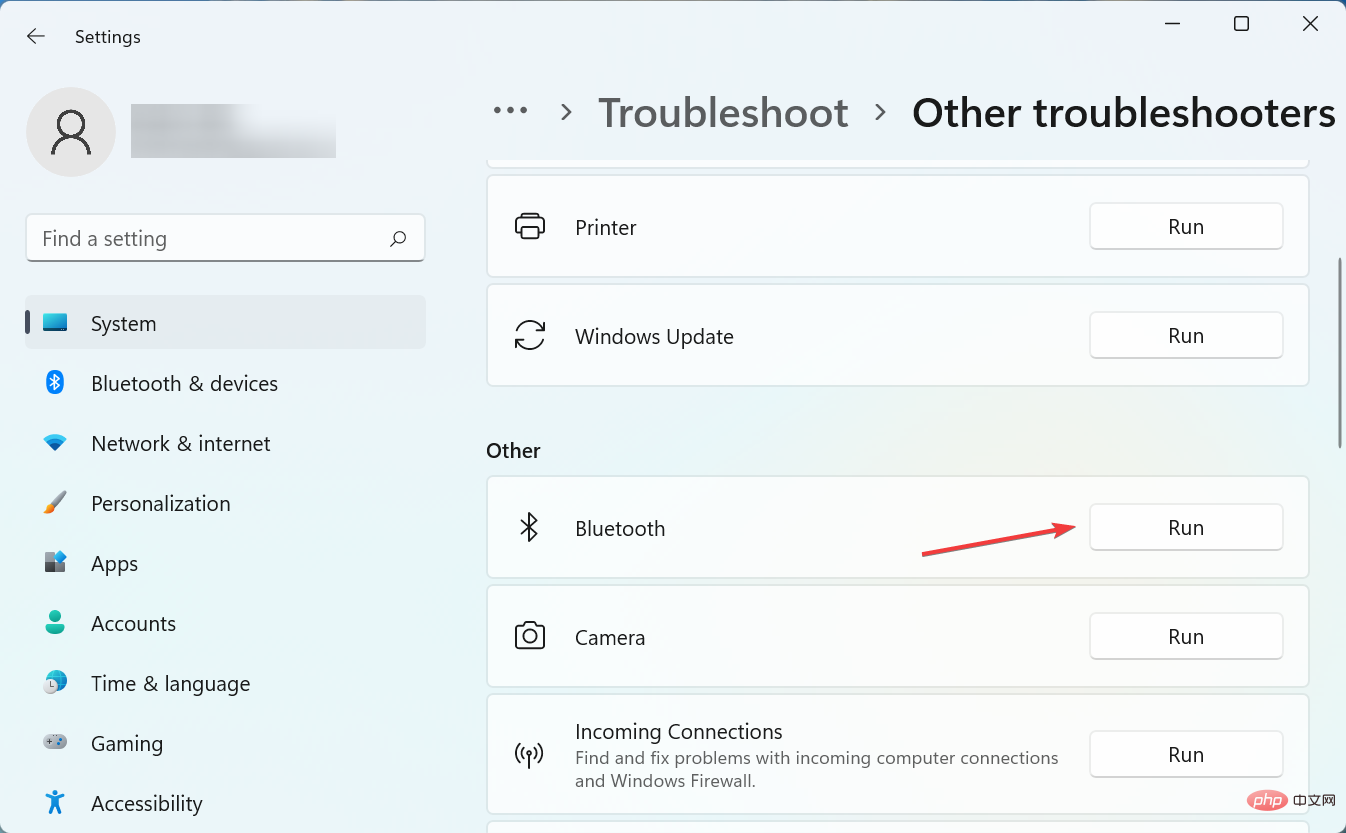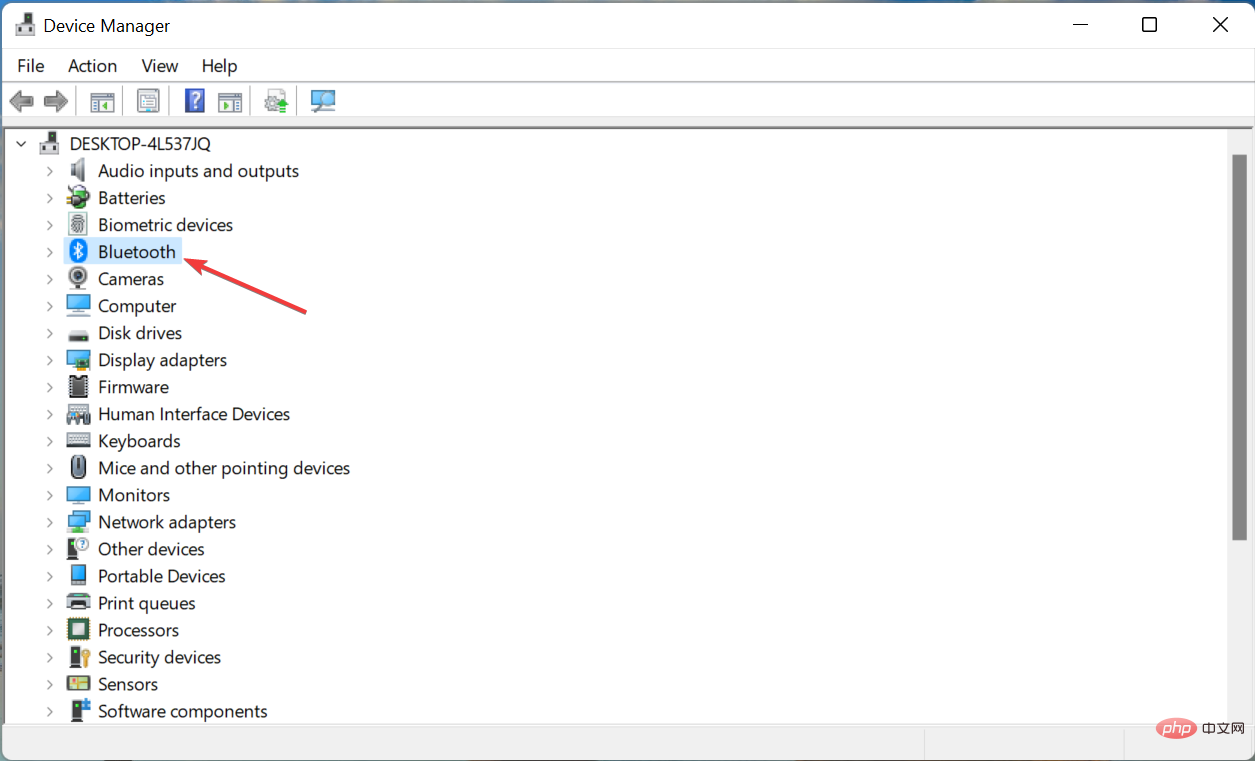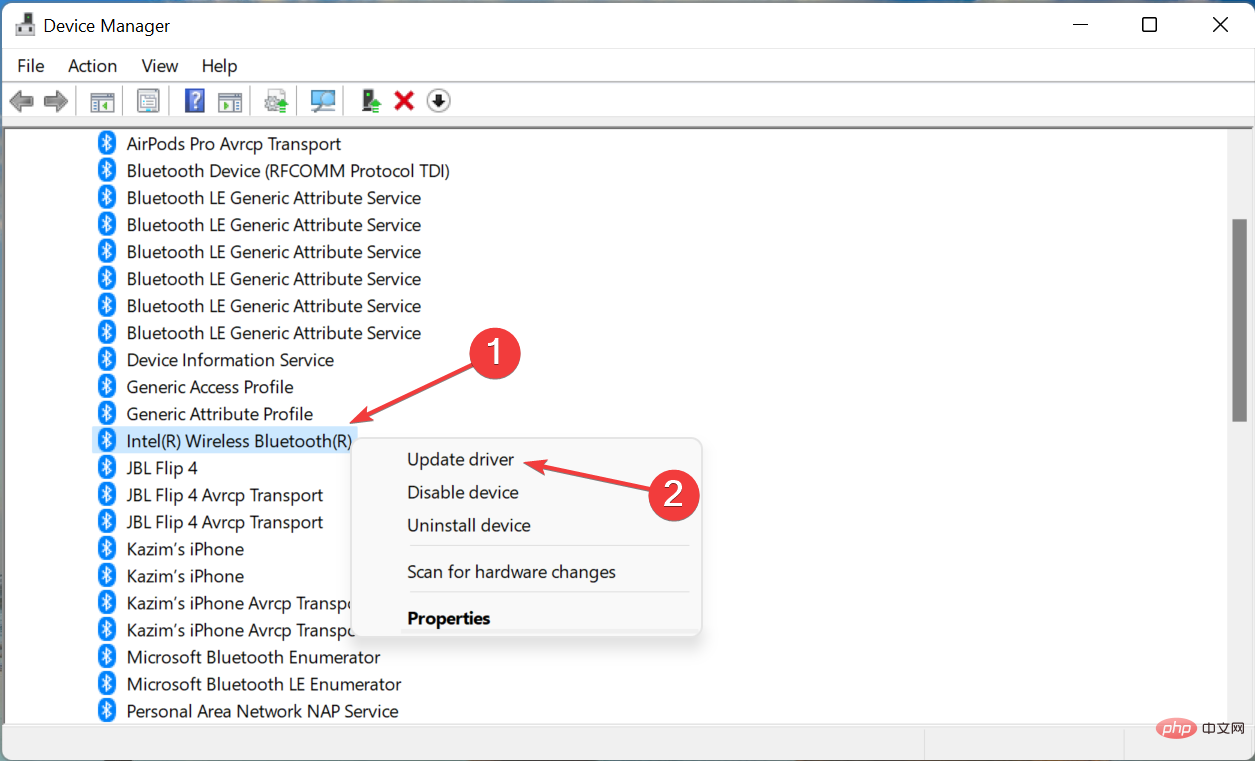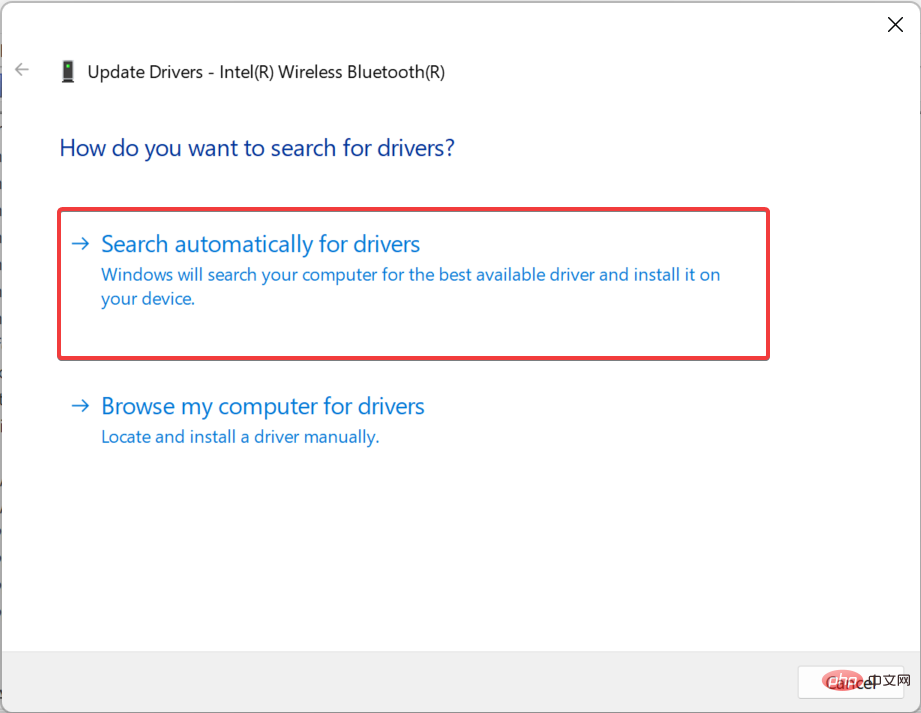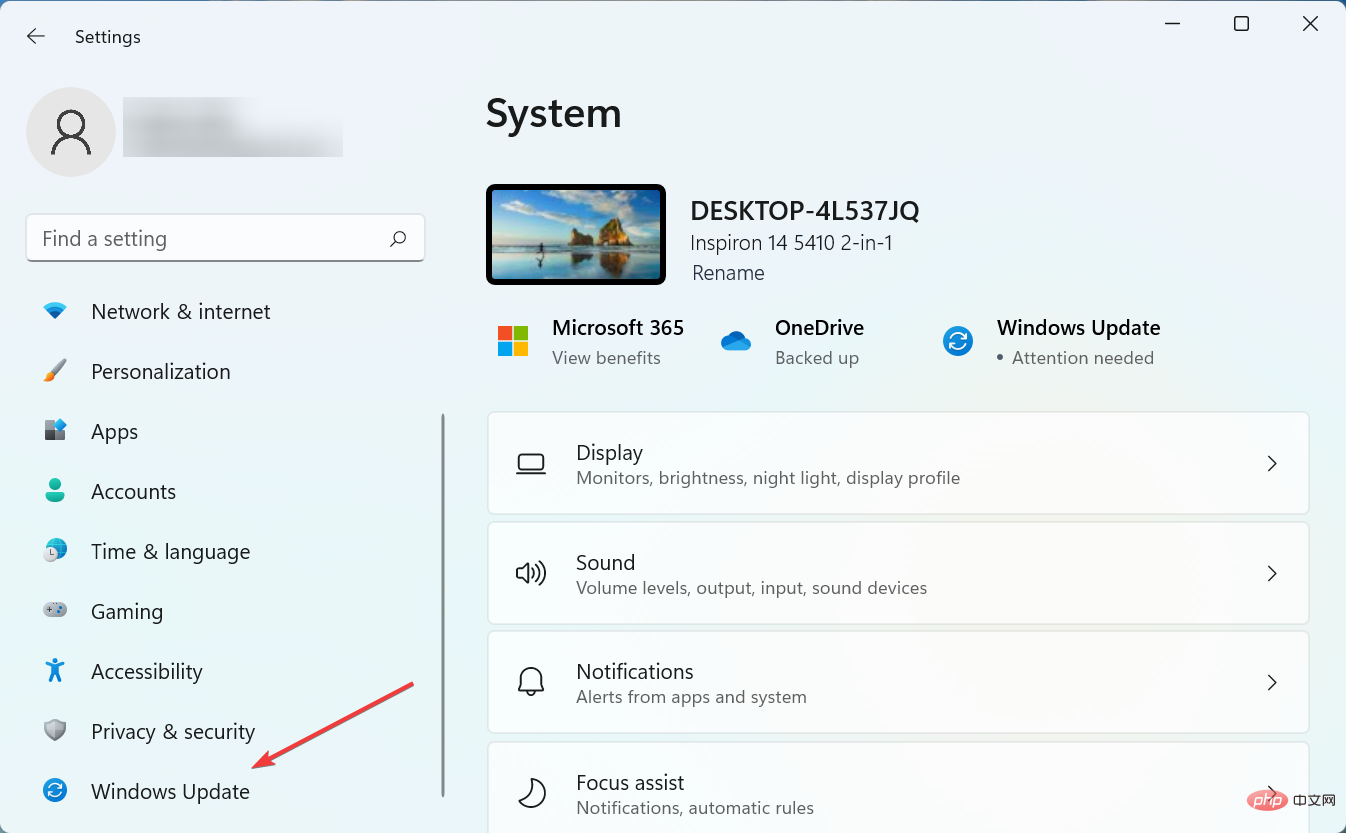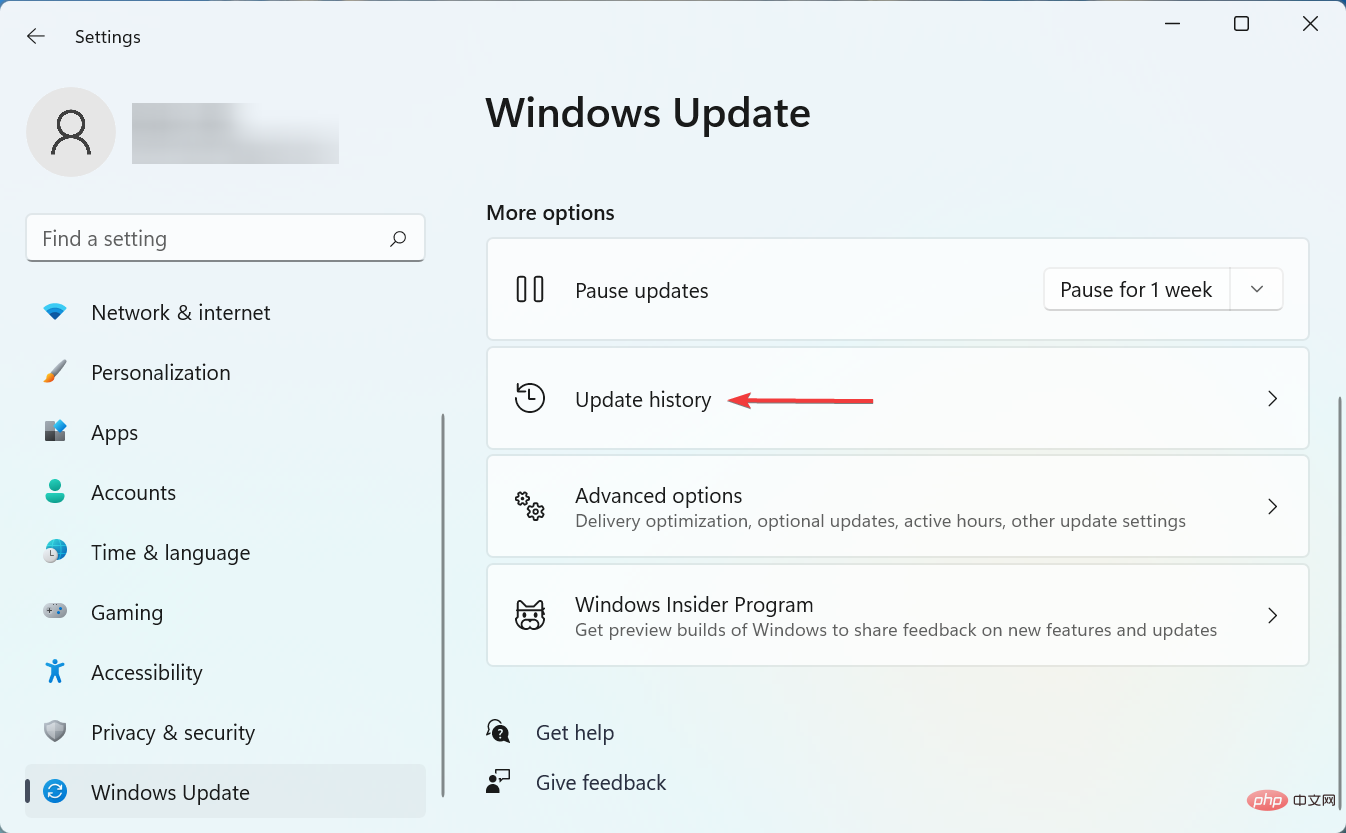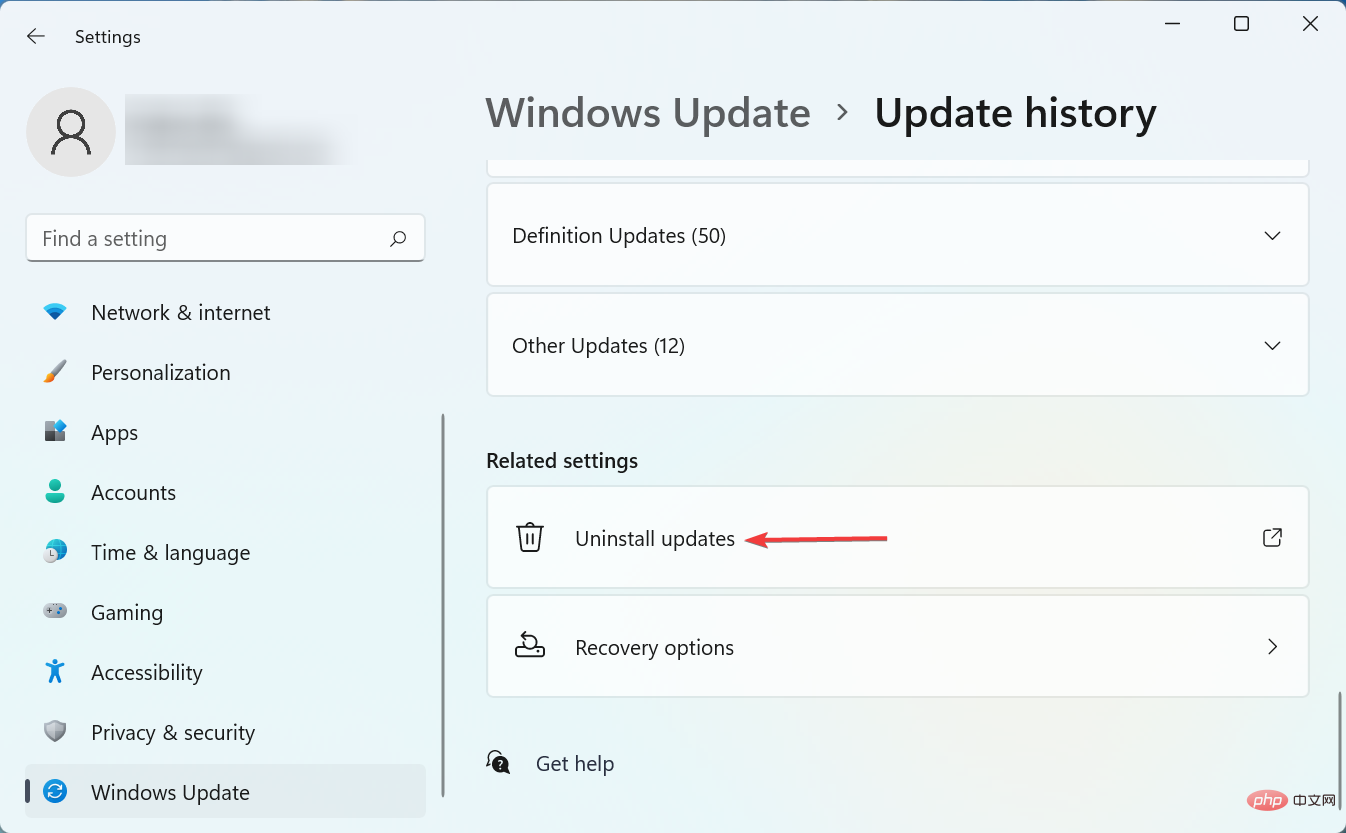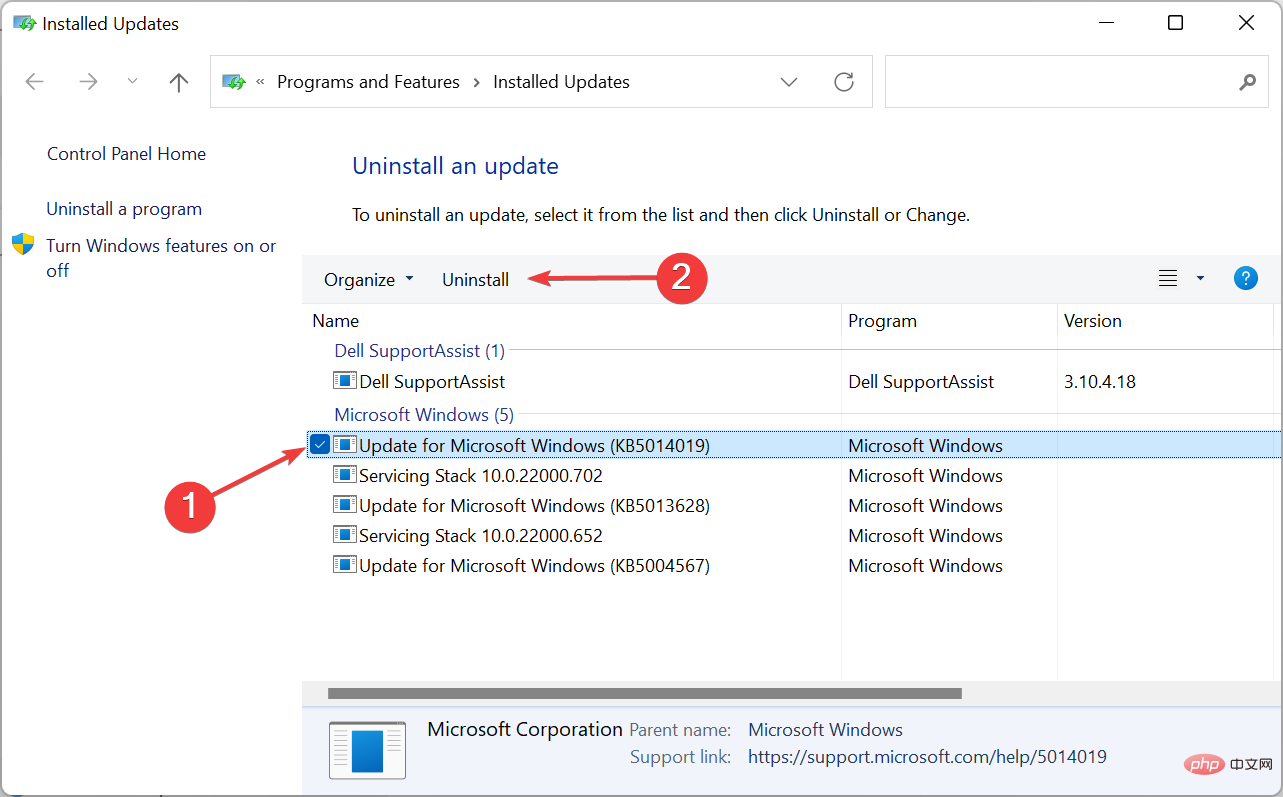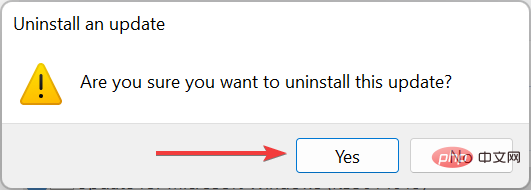Bluetooth is grayed out in Device Manager: 3 tips to fix it
Bluetooth allows for quick connections with peripheral devices, whether they are microphones, speakers or other accessories. However, some users have reported that Bluetooth appears grayed out in Device Manager.
When this happens, it will affect the computer's ability to connect to peripherals and affect your experience.
So, let’s find out the best ways to fix the problem when Bluetooth shows up gray in Device Manager.
Why is the Bluetooth device gray?
Every time you see a gray device, it's pointing to two things. The device was previously connected to the computer but is currently not connected (or not powered on), although it is present in the hardware profile. Or, it could be a copy of a device that is no longer connected.
In most cases, the Bluetooth device option is grayed out due to connection issues. It could also be a software-related issue, a driver-related issue, or a conflicting application.
Why is there no Bluetooth option in Device Manager?
First of all, if your computer doesn't support Bluetooth, there won't be an option for it in Device Manager. Alternatively, Bluetooth may be hidden in Device Manager and you need to view hidden devices.
- Launch Device Manager and click the View menu at the top.

- SelectShow hidden devices from the list of options that appears.

How to fix a grayed out Bluetooth device?
1. Run the dedicated troubleshooter
- Press Windows I to launch Settings, then click Troubleshooter.

- Next, click Additional Troubleshooters.

- Click Run next to Bluetooth.

If Bluetooth is missing or appears grayed out in Device Manager, running a dedicated troubleshooter may help.
2. Update the driver
- Start the Device Manager and double-click the Bluetooth entry here.

- Now, right-click on the Bluetooth adapter and select Update Driver.

- Next, select Search automatically for drivers.

If you see an exclamation mark next to Bluetooth in Device Manager, simply reinstall the driver.
Another option for updating Bluetooth drivers so that they appear in Device Manager is to use an automated solution that can prevent severe damage if the wrong driver is installed.
The driver update software we tested was DriverFix, which quickly scans your computer and lists all hardware devices with outdated drivers. DriverFix's scan report may indicate that the Bluetooth driver needs to be updated.
⇒ Get DriverFix
3. Uninstall recent Windows updates
- Press Windows ILaunch Settings and select Windows Update.

- Now, click Update History.

- Click Uninstall updates.

- Select the most recent Windows update and click Uninstall.

- Finally, click Yes on the confirmation prompt.

If Bluetooth is missing from Device Manager on your computer, these are some ways you can fix the problem. Also, learn what to do if your device isn't detected by Bluetooth.
The above is the detailed content of Bluetooth is grayed out in Device Manager: 3 tips to fix it. For more information, please follow other related articles on the PHP Chinese website!

Hot AI Tools

Undresser.AI Undress
AI-powered app for creating realistic nude photos

AI Clothes Remover
Online AI tool for removing clothes from photos.

Undress AI Tool
Undress images for free

Clothoff.io
AI clothes remover

AI Hentai Generator
Generate AI Hentai for free.

Hot Article

Hot Tools

Notepad++7.3.1
Easy-to-use and free code editor

SublimeText3 Chinese version
Chinese version, very easy to use

Zend Studio 13.0.1
Powerful PHP integrated development environment

Dreamweaver CS6
Visual web development tools

SublimeText3 Mac version
God-level code editing software (SublimeText3)

Hot Topics
 1378
1378
 52
52
 How to convert XML to PDF on your phone?
Apr 02, 2025 pm 10:18 PM
How to convert XML to PDF on your phone?
Apr 02, 2025 pm 10:18 PM
It is not easy to convert XML to PDF directly on your phone, but it can be achieved with the help of cloud services. It is recommended to use a lightweight mobile app to upload XML files and receive generated PDFs, and convert them with cloud APIs. Cloud APIs use serverless computing services, and choosing the right platform is crucial. Complexity, error handling, security, and optimization strategies need to be considered when handling XML parsing and PDF generation. The entire process requires the front-end app and the back-end API to work together, and it requires some understanding of a variety of technologies.
 What is the reason why PS keeps showing loading?
Apr 06, 2025 pm 06:39 PM
What is the reason why PS keeps showing loading?
Apr 06, 2025 pm 06:39 PM
PS "Loading" problems are caused by resource access or processing problems: hard disk reading speed is slow or bad: Use CrystalDiskInfo to check the hard disk health and replace the problematic hard disk. Insufficient memory: Upgrade memory to meet PS's needs for high-resolution images and complex layer processing. Graphics card drivers are outdated or corrupted: Update the drivers to optimize communication between the PS and the graphics card. File paths are too long or file names have special characters: use short paths and avoid special characters. PS's own problem: Reinstall or repair the PS installer.
 How to jump from Word plug-in to browser for login authorization?
Apr 01, 2025 pm 08:27 PM
How to jump from Word plug-in to browser for login authorization?
Apr 01, 2025 pm 08:27 PM
How to achieve login authorization from within the application to outside the application? In some applications, we often encounter the need to jump from one application to another...
 xml online formatting
Apr 02, 2025 pm 10:06 PM
xml online formatting
Apr 02, 2025 pm 10:06 PM
XML Online Format Tools automatically organizes messy XML code into easy-to-read and maintain formats. By parsing the syntax tree of XML and applying formatting rules, these tools optimize the structure of the code, enhancing its maintainability and teamwork efficiency.
 Does H5 page production require continuous maintenance?
Apr 05, 2025 pm 11:27 PM
Does H5 page production require continuous maintenance?
Apr 05, 2025 pm 11:27 PM
The H5 page needs to be maintained continuously, because of factors such as code vulnerabilities, browser compatibility, performance optimization, security updates and user experience improvements. Effective maintenance methods include establishing a complete testing system, using version control tools, regularly monitoring page performance, collecting user feedback and formulating maintenance plans.
 How to convert XML to PDF on Android phone?
Apr 02, 2025 pm 09:51 PM
How to convert XML to PDF on Android phone?
Apr 02, 2025 pm 09:51 PM
Converting XML to PDF directly on Android phones cannot be achieved through the built-in features. You need to save the country through the following steps: convert XML data to formats recognized by the PDF generator (such as text or HTML); convert HTML to PDF using HTML generation libraries such as Flying Saucer.
 How to speed up the loading speed of PS?
Apr 06, 2025 pm 06:27 PM
How to speed up the loading speed of PS?
Apr 06, 2025 pm 06:27 PM
Solving the problem of slow Photoshop startup requires a multi-pronged approach, including: upgrading hardware (memory, solid-state drive, CPU); uninstalling outdated or incompatible plug-ins; cleaning up system garbage and excessive background programs regularly; closing irrelevant programs with caution; avoiding opening a large number of files during startup.
 The XML file is too large, can I convert PDFs on my phone?
Apr 02, 2025 pm 09:54 PM
The XML file is too large, can I convert PDFs on my phone?
Apr 02, 2025 pm 09:54 PM
It is difficult to directly convert super large XML to PDF on mobile phones. It is recommended to adopt a partition strategy: cloud conversion: upload to the cloud platform and processed by the server. It is efficient and stable but requires network and possible payment; segmented processing: Use programming tools to split large XML into small files and convert them one by one, requiring programming capabilities; find conversion tools that specialize in processing large files, pay attention to checking user reviews to avoid choosing software that is prone to crash.



